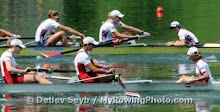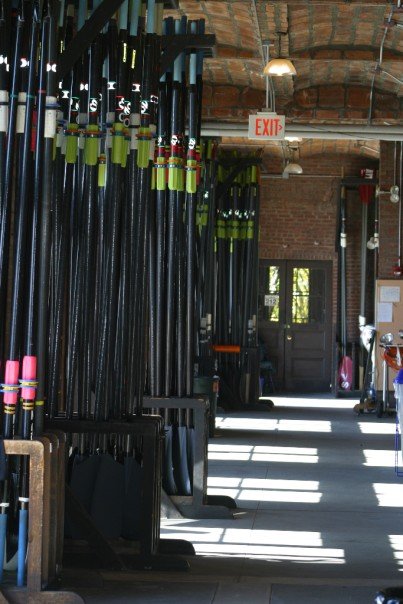Last Sunday I went to a great class in Seattle at Flywheel, a cycling studio that my former coxswain and always badass Mary Whipple now teaches at. What’s different about a Flywheel class (versus a standard spin/indoor cycling class) is that competition—if you want it—is there for the taking. You zero in on targeting certain RPMs or power output as you’re cycling along, but a few times throughout the class, everyone’s total work done—listed with a username which can be as anonymous as you want—flashes up on a screen, so you can race others if that’s your thing (yes, that’s my thing.)
The erg, as much sucking it up as it requires sometimes, is by and large a what-you-put-into-it-is-what-you-get-out-of-it tool. You can either look at December, January, and February as three hellish months, and spend each practice feeling sorry for yourself that your team isn’t on the water—or you can show up to each practice, each day with a goal in mind. What goal? Well, that’s up to you. Going faster or being more consistent than the last time you did that workout is a start. Test your limits on what you think your 5K/6K, 2K, and max paces are. Chase down the teammate whose seat you’re after. If you’re the fastest one already, see how much you can widen the gap. Each day you set, pursue with your best effort, and accomplish these little goals, you get closer to your big ones—making the boat you want to make, helping your team build the fitness, strength and mental toughness you’ll need to win together, and getting faster than you ever thought you could be.
 |
| Michelle Guerette, one of my first erg inspirations, in our college erg room. Photo: NYTimes. |
What motivates me on these dark, freezing mornings or pitch-black evenings when I’m heading down to the boathouse or erg room or the little alcove in the basement where the old rattle-y erg lives is knowing, like the instructor said Sunday, that getting faster and getting tougher is about being your own competitor. It’s knowing that I am working alongside my teammates, even from far away, because we know how hard we are working towards our goals each practice, each day. And it’s about loving to win and to put in the work it takes to do that.
Esther

















